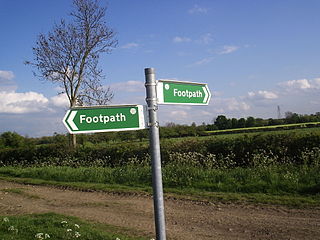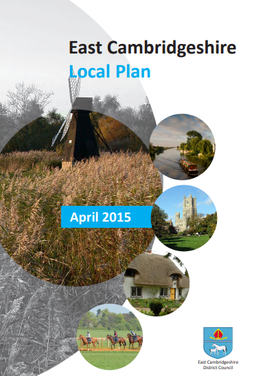
A statutory instrument (SI) is the principal form in which delegated legislation is made in Great Britain.

The National Technical Information Service (NTIS) is an agency within the U.S. Department of Commerce. The primary mission of NTIS is to collect and organize scientific, technical, engineering, and business information generated by U.S. government-sponsored research and development, for private industry, government, academia, and the public. The systems, equipment, financial structure, and specialized staff skills that NTIS maintains to undertake its primary mission allow it to provide assistance to other agencies requiring such specialized resources.
Local government in Wales is primarily undertaken by the twenty-two principal councils. The councils are unitary authorities, meaning they are responsible for providing local government services within their principal area, including education, social work, environmental protection, and most highway maintenance. The principal areas are divided into communities, most of which have an elected community council. The services provided by community councils vary, but they will typically maintain public spaces and facilities. Local councils in Wales are elected; the most recent local elections in Wales took place in 2022, and the next are due to take place in 2027.

The Department for Culture, Media and Sport (DCMS) is a department of His Majesty's Government, with responsibility for culture and sport in England, and some aspects of the media throughout the UK, such as broadcasting.

Local government in England broadly consists of three layers: civil parishes, local authorities, and regional authorities. Every part of England is governed by at least one local authority, but parish councils and regional authorities do not exist everywhere. In addition, there are 31 police and crime commissioners, four police, fire and crime commissioners, and ten national park authorities with local government responsibilities. Local government is not standardised across the country, with the last comprehensive reform taking place in 1974.

In England and Wales, excluding the 12 Inner London boroughs and the City of London, the right of way is a legally protected right of the public to pass and re-pass on specific paths. The law in England and Wales differs from Scots law in that rights of way exist only where they are so designated, whereas in Scotland any route that meets certain conditions is defined as a right of way, and in addition, there is a general presumption of access to the countryside. Private rights of way or easements also exist.
Town and country planning in the United Kingdom is the part of English land law which concerns land use planning. Its goal is to ensure sustainable economic development and a better environment. Each country of the United Kingdom has its own planning system that is responsible for town and country planning, which outside of England is devolved to the Northern Ireland Assembly, the Scottish Parliament and the Senedd.

The Inquiries Act 2005 is an Act of the Parliament of the United Kingdom. According to the explanatory notes, published by the Department for Constitutional Affairs, the Act "is intended to provide a comprehensive statutory framework for inquiries set up by Ministers to look into matters of public concern".

A development plan sets out a local authority's policies and proposals for land use in their area. The term is usually used in the United Kingdom. A Local Plan is one type of development plan. The development plan guides and shapes day-to-day decisions as to whether or not planning permission should be granted, under the system known as development control. In order to ensure that these decisions are rational and consistent, they must be considered against the development plan adopted by the authority, after public consultation and having proper regard for other material factors.

The Town and Country Planning (England) Order 2015 is a statutory instrument, applying in England, that grants planning permission for certain types of development without the requirement for approval from the local planning authority.
Citation of United Kingdom legislation includes the systems used for legislation passed by devolved parliaments and assemblies, for secondary legislation, and for prerogative instruments. It is relatively complex both due to the different sources of legislation in the United Kingdom, and because of the different histories of the constituent countries of the United Kingdom.
Overview and Scrutiny is a function of local authorities in England and Wales. It was introduced by the Local Government Act 2000 which created separate Executive and Overview and Scrutiny functions within councils.
The National Streetworks Gazetteer is a service provided in partnership between Ordnance Survey and British highway authorities – the County, City or District Councils – which provides information on each and every adopted highway in England and Wales. Different legislation exists for the system in Scotland.

The fire services in the United Kingdom operate under separate legislative and administrative arrangements in England and Wales, Northern Ireland, and Scotland.
In English law, an appropriate adult is a parent, guardian or social worker; or if no person matching this is available, any responsible person over 18. The term was introduced as part of the policing reforms in the Police and Criminal Evidence Act 1984 and applies in England and Wales.
In England and Wales a fire authority or fire and rescue authority is a statutory body made up of a committee of local councillors which oversees the policy and service delivery of a fire and rescue service. Prior to the Fire Services Act 2004 many fire and rescue authorities were known as fire and civil defence authorities; this designation is no longer used.

Homelessness in the United Kingdom is measured and responded to in differing ways in England, Scotland, Wales and Northern Ireland, but affects people living in every part of the UK's constituent countries.
A local area agreement (LAA) in the UK is a 3-year agreement between central government and a local area working through its Local Strategic Partnership. It contains a set of improvement targets which local organisations are committed to achieving and a delivery plan setting out what each partner is intending to do to achieve those targets.
Planning gains are ways that local authorities in the United Kingdom can secure additional public benefits from developers, during the granting of planning permission.
The Ministry of Education (1944-1964) was a central government department governed by the Minister of Education, with responsibility in England and Wales for:
- Promoting the education of people;
- Developing educational institutions;
- Developing policy to provide a comprehensive educational service;
- Securing the effective execution of the education policy by local education authorities











